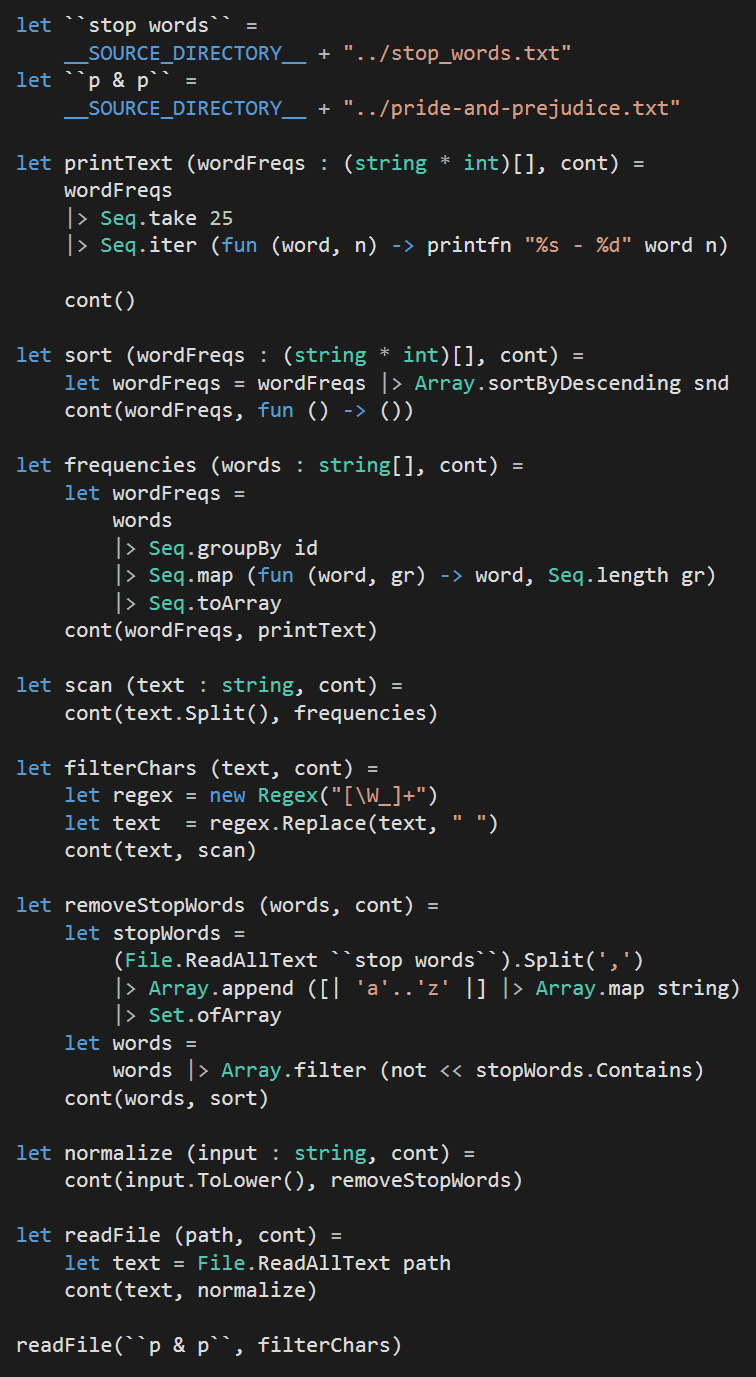
Yan Cui
I help clients go faster for less using serverless technologies.
NOTE : read the rest of the series, or check out the source code.
If you enjoy reading these exercises then please buy Crista’s book to support her work.
Following on from the last post, we will look at the Kick Forward style today.
Style 8 – Kick Forward
You may also know this style as Continuation-Passing Style, or CPS for short.
Constraints
- All the constraints from the Pipeline style
- Each function takes an additional parameter, usually the last, which is another function
- That function parameter is applied at the end of the current function
- That function parameter is given, as input, what would be the output of the current function
- The larger problem is solved as a pipeline of functions, but where the next function to be applied is given as parameter to the current function
Now, the port for Crista’s solution was pretty straight forward:

in the end, we ended up with a bunch of functions that:
- takes in a continuation (the dotted lined box below)
- executes the continuation whilst supplying a continuation for the aforementioned continuation
with the exception of printText which expects a continuation that doesn’t expect a continuation.

Looking at these functions (or, building blocks), I don’t really see the execution flow just yet. Instead, I see roughly two execution paths starting with readFile and filterChars.
Let’s rearrange things a little bit:

Ahhh, now things finally made sense when I follow the zigzag line!

Although CPS is an important pattern to understand and familiarize yourself with, I have never written any non-trivial application code in this style as it’s not straight forward and obvious, and adds unnecessary complexity in many cases.
Case in point:

That said, if you have ever used computation expressions in F# (async { }, seq { }, query { }, cloud { }, etc.) then you have written code in CPS without realizing.
Consider the signature of bind:

Essentially, computation expressions just takes your sequential code and turns it into CPS code.
If you want to learn more about computation expressions, Scott Wlaschin has a great series of posts on the topic.
You can find all the source code for this exercise here.
Whenever you’re ready, here are 3 ways I can help you:
- Production-Ready Serverless: Join 20+ AWS Heroes & Community Builders and 1000+ other students in levelling up your serverless game. This is your one-stop shop for quickly levelling up your serverless skills.
- I help clients launch product ideas, improve their development processes and upskill their teams. If you’d like to work together, then let’s get in touch.
- Join my community on Discord, ask questions, and join the discussion on all things AWS and Serverless.


Pingback: F# Weekly #45, 2015 | Sergey Tihon's Blog